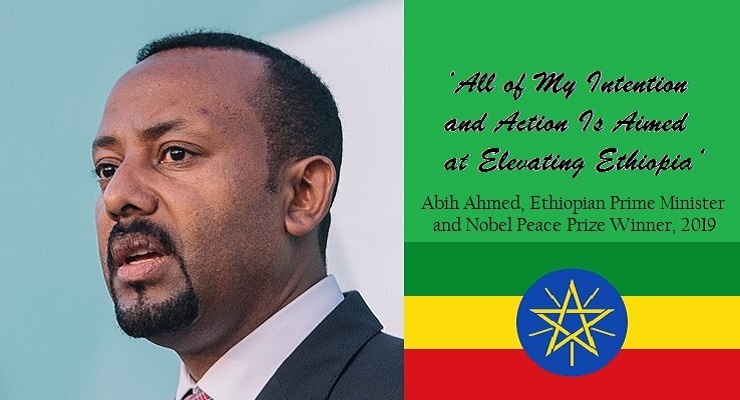 Ethiopia’s Abiy Ahmed’s rise to the Prime Ministry was well-received in many quarters. He even received the Nobel Peace Prize in 2019 but soon went to war with factions in the Tigray Region. Over time, Abiy’s approval ratings have fallen and expert opinion argues that June’s elections may deepen mistrust for his government instead of providing legitimacy. This article by Adem K Abebe is published by IPS. Here is an excerpt:
Ethiopia’s Abiy Ahmed’s rise to the Prime Ministry was well-received in many quarters. He even received the Nobel Peace Prize in 2019 but soon went to war with factions in the Tigray Region. Over time, Abiy’s approval ratings have fallen and expert opinion argues that June’s elections may deepen mistrust for his government instead of providing legitimacy. This article by Adem K Abebe is published by IPS. Here is an excerpt:
Ethiopia is set to hold general elections on 21 June 2021 amid a devastating war in Tigray region and continuing security challenges across the country. But this was not how things were supposed to pan out.
After the protest-induced reshuffle within the then ruling coalition – the Ethiopian Peoples’ Revolutionary Democratic Front (EPRDF) – Abiy Ahmed became prime minister in April 2018. Abiy’s unifying message found an echo across linguistic and political divides and confidence building measures generated unprecedented euphoria towards a transition to peace and democracy. Back then, many hoped this period would be topped off by credible elections in August 2020, postponed to June 2021 due to the Covid-19 pandemic.
In hindsight, the euphoria appears unrealistic. Transitions from authoritarianism are moments of weakness, vulnerable to potential breakdown of order and even civil war, particularly in countries divided along identities. The pendulum swung back to an enduring political culture of mistrust, labelling, absolute dominance, and elimination. And mistrust is a self-fulfilling prophesy.
Read the full article here.
Leave a Reply